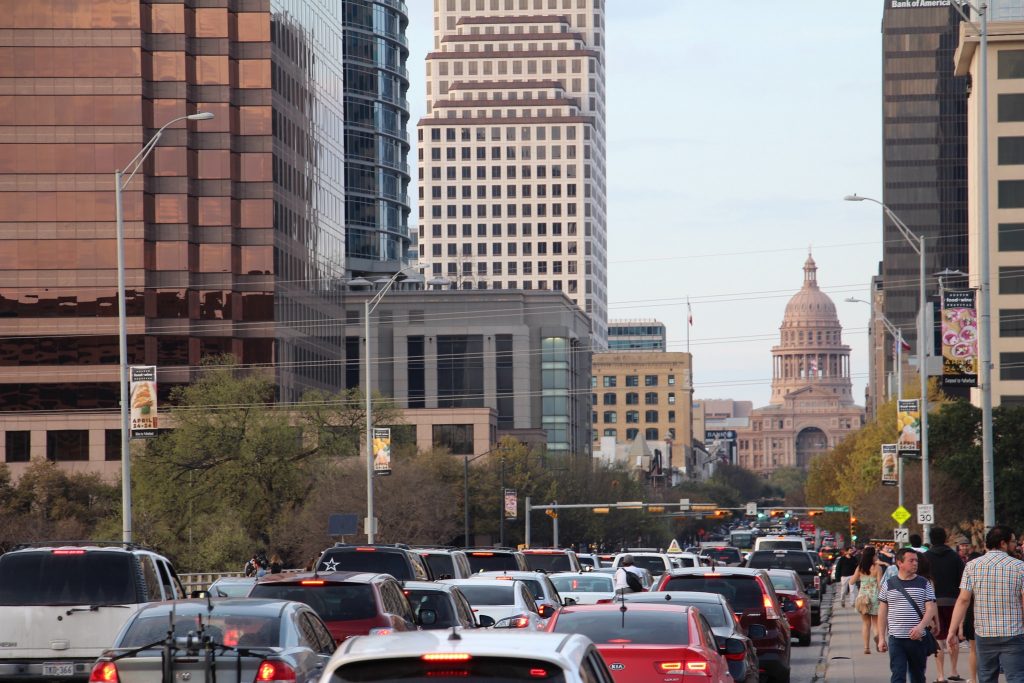By Mike Montgomery
This weekend will be a historically busy one for Washington D.C. Today, Donald Trump was sworn in as the 45th president of the United States in front of the U.S. Capitol, where his fans were out en masse to watch. Saturday, hundreds of thousands will flood the streets of the city to protest his presidency.
No matter which side of the fence they’re on, every D.C. visitor staying in a hotel had one thing in common: They all paid an insane amount for lodging.
We did some research into rooms this coming weekend and found that hotels are jacking up their prices by more than 800%. Book a room at the Fairmont in Georgetown earlier in January and you would have paid $190 per night for a room with a king bed. The weekend of the inauguration? That same room will cost you $1,600 per night (and you’ll have to book for at least three nights.)
Prices won’t be any better in Dupont Circle. A room at the Kimpton Carlyle Hotel, which would typically go for $99 per night, will cost you $899 per night the weekend of the inauguration.
It is a shame that these absurd rates put hotel rooms out of reach for most Americans who might want to either see democracy in action or protest the people who are soon to be running the country.
But it’s not a huge surprise. Hotels make a practice of price gouging whenever they can, only they call it “compression” pricing, a made-up term hotel owners use to gloss over the nasty but time-honored practice of fleecing consumers during high-traffic events. Hotels rely on the old supply versus demand argument to justify their behavior of charging unreasonable rates in the name of big corporations lining their coffers.
And while supply and demand is the guiding force of our economic system, it’s worth taking a deeper look at what the hotels are doing and question whether their extreme prices really make economic sense for the workers and the communities where those hotels operate. The people who work in those hotels (most of whom don’t even earn a living wage because the hotels and their lobbyists fight against even modest minimum wage increases) don’t bring in extra money when the hotel is booked to capacity with people paying $1,000 per night or more for a room. The surrounding community doesn’t get an economic boost outside of transit and occupancy taxes that don’t directly benefit local residents. Our research has found that 60 cents out of every dollar spent by people staying at hotels goes back to the corporate owners no matter how much the rooms cost.
While hotel owners might prefer their customers not think about those high prices in terms of price gouging, they’re happy to talk to their investors about the benefits of jacking up prices whenever possible. According to an article in The Wall Street Journal, Pebblebrook Hotel Trust CEO Jon Bortz was quoted as complaining to investors that home sharing platforms, like Home Away and VRBO, are making things hard for hotels.
The company’s ability to “price at maybe what the customer would describe as sort of gouging rates,” has diminished with the growth of home sharing, he told investors. “We’ve lost a lot of that ability at this point within the major markets where these events take place.”
There’s a lesson in that, though inauguration hotel rates show that the rise of home sharing hasn’t fully removed price gouging from the hotels owners’ quivers quite yet.
But the more home sharing there is in a city, the harder it is for hotels to justify price gouging. According to UBS leisure and lodging analyst Robin Farley, more home share listings has a direct effect on limiting the frequency of compression pricing at area hotels.
A bill in front of the D.C. City Council last year would have imposed new regulations on home sharing in the district but the bill died in committee. Hopefully this year the City Council will take a more informed view on home sharing and consider how, especially during large events like the ones coming at the end of this week, it would make sense for the nation’s capital to allow more visitors in instead of keeping them out due to price gouging.
While we may not know exactly what is in store over the next four years, it’s safe to assume that Washington, D.C. will remain a tourist magnet. The city should open its doors as wide as possible.





